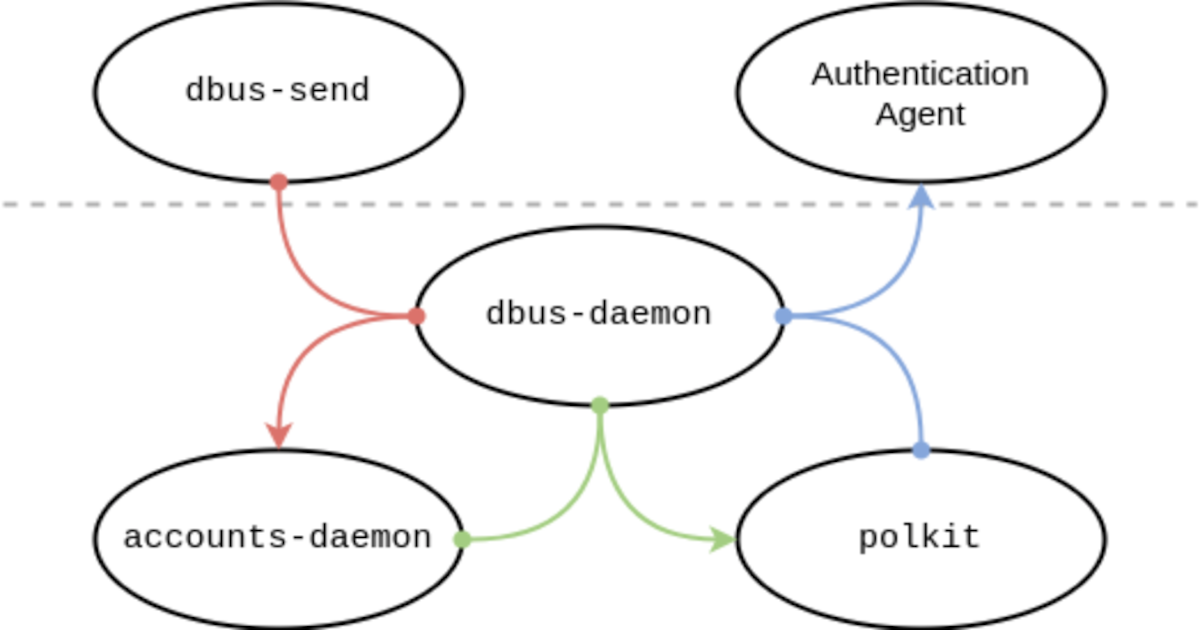polkit is a system service installed by default on many Linux distributions. It’s used by systemd, so any Linux distribution that uses systemd also uses polkit. As a member of GitHub Security Lab, my job is to help improve the security of open source software by finding and reporting vulnerabilities. A few weeks ago, I found a privilege escalation vulnerability in polkit. I coordinated the disclosure of the vulnerability with the polkit maintainers and with Red Hat’s security team. It was publicly disclosed, the fix was released on June 3, 2021, and it was assigned CVE-2021-3560.
The vulnerability enables an unprivileged local user to get a root shell on the system. It’s easy to exploit with a few standard command line tools, as you can see in this short video. In this blog post, I’ll explain how the exploit works and show you where the bug was in the source code.
Table of contents
History of CVE-2021-3560 and vulnerable distributions
About polkit
Exploitation steps
polkit architecture
The vulnerability
org.freedesktop.policykit.imply annotations
Conclusion
History of CVE-2021-3560 and vulnerable distributions
The bug I found was quite old. It was introduced seven years ago in commit bfa5036 and first shipped with polkit version 0.113. However, many of the most popular Linux distributions didn’t ship the vulnerable version until more recently.
The bug has a slightly different history on Debian and its derivatives (such as Ubuntu), because Debian uses a fork of polkit with a different version numbering scheme. In the Debian fork, the bug was introduced in commit f81d021 and first shipped with version 0.105-26. The most recent stable release of Debian, Debian 10 (“buster”), uses version 0.105-25, which means that it isn’t vulnerable. However, some Debian derivatives, such as Ubuntu, are based on Debian unstable, which is vulnerable.
#security #github security lab #github
